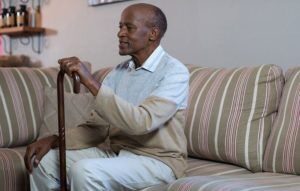Data has shown that COVID-19 is infecting and killing in minority communities in disproportionate numbers, and this trend extends to nursing homes with larger numbers of minority residents as well. In fact, the two trends appear to be related. One of the main reasons that nursing homes with a high percentage of minority residents have the worst outbreaks of COVID-19 is that the residents and employees come from underserved communities that make them more likely to contract and spread the virus.
It is easy to understand why nursing homes are more susceptible to viruses. They have dense populations of people with weakened immune systems and underlying conditions, and they are often managed with a focus on profits over resident safety. This is true of nursing homes across the country, so why are nursing homes with larger numbers of minority residents doing worse? Studies by the University of Chicago and National Public Radio (NPR) have attempted to find out the answer.
The study by the Harris School of Public Policy at UChicago analyzed coronavirus incidents at 5,527 nursing homes in 12 states and found that “nursing homes with the lowest percent of white residents were more than twice as likely to have COVID-19 cases or deaths as those with the highest percent white residents.” The NPR analysis of New York nursing homes found that seven of the worst 11 outbreaks of COVID-19 had minority populations of 46% or higher.
Bad safety practices (e.g., short staffing, lack of infection controls and supplies, etc.) are still the primary reason for the catastrophic impact of COVID-19 at nursing homes, but nursing homes with larger minority populations seem to be even more vulnerable. There appear to be two main reasons: 1) a higher incidence of underlying conditions for nonwhite residents and 2) nursing home workers living in communities where systemic problems give them higher exposure to COVID-19, leading to increased transmission from workers to residents.
Underlying conditions, such as asthma and diabetes, are a major factor in contracting and surviving COVID-19. Poverty and the lack of access to quality affordable health care in many minority communities leads to long-term health issues. As a result, nonwhite residents are more likely to have the underlying conditions that make them susceptible to COVID-19 and more likely to die from it.
Nursing homes with higher percentages of nonwhite residents tend to be served by workers from local communities, and these tend to be counties where the rates of COVID-19 are the highest. Transmission from seemingly healthy employees to residents is a primary driver of the spread of COVID-19 in nursing homes. A Washington Post analysis found that “Majority black counties have three times the rate of infections and nearly six times the rate of deaths as majority white counties.” If nursing home workers are going home in communities where COVID-19 is more prevalent, they are more likely to contract the virus. Like nursing home employees around the country, they return to work each day without the testing or infection prevention resources that are desperately needed, such as personal protective equipment, and the virus is able to spread to residents.
Federal and state governments have placed a greater priority on nursing homes in recent weeks. Tragically, once a highly contagious disease like COVID-19 is already inside these poorly prepared nursing home facilities, these actions are too little, too late.
Our attorneys at Brown & Barron, LLC focus on representing nursing home residents who have been neglected or abused. We know first-hand how these facilities function, and just how vulnerable residents are to injuries. If you believe you or a family member has suffered as a result of nursing home negligence, we invite you to contact our team as soon as possible to learn more about your rights and options.
To learn more about how the coronavirus is affecting nursing homes and their residents, visit our COVID Resource Center. To contact our team, call (410) 698-1717 today for a consultation.


